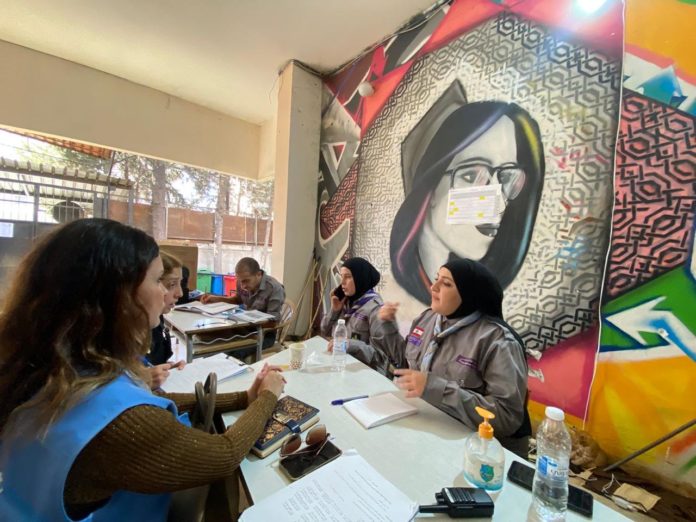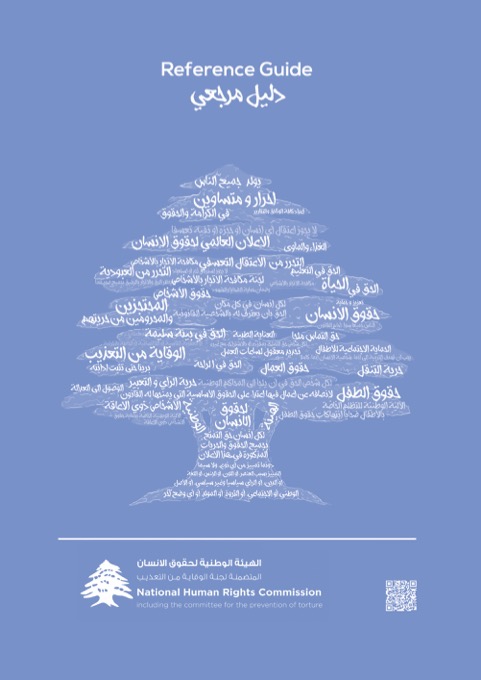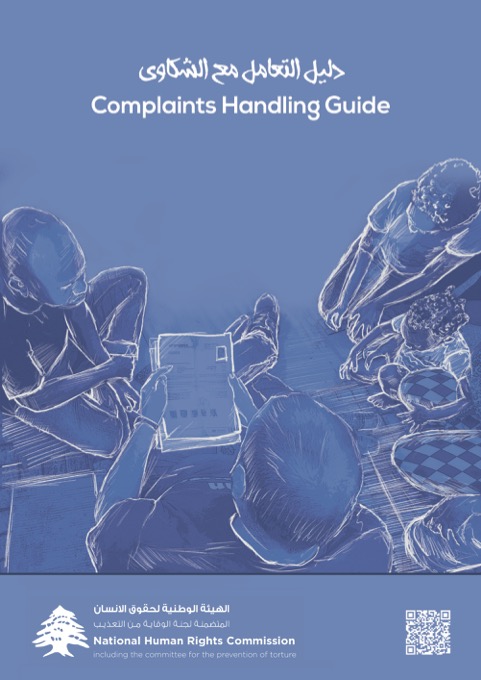هذه المقالة متاحة أيضًا بـ: العربية (Arabic)
As part of its mission to document complaints and violations affecting displaced persons, relay them to relevant authorities, and coordinate between the various government bodies addressing the humanitarian consequences of the ongoing Israeli aggression on Lebanon, the National Human Rights Commission, including the Committee for the Prevention of Torture (NHRC_CPT) conducted a visit to Tripoli Official Girls’ High School, also known as “Al-Ghurabaa High School.” The delegation included Dr. Rana Al-Jammal, Secretary-General of the Commission, volunteer lawyer Manar Haddad, and food and water safety specialist Mira Hajja Kashif.
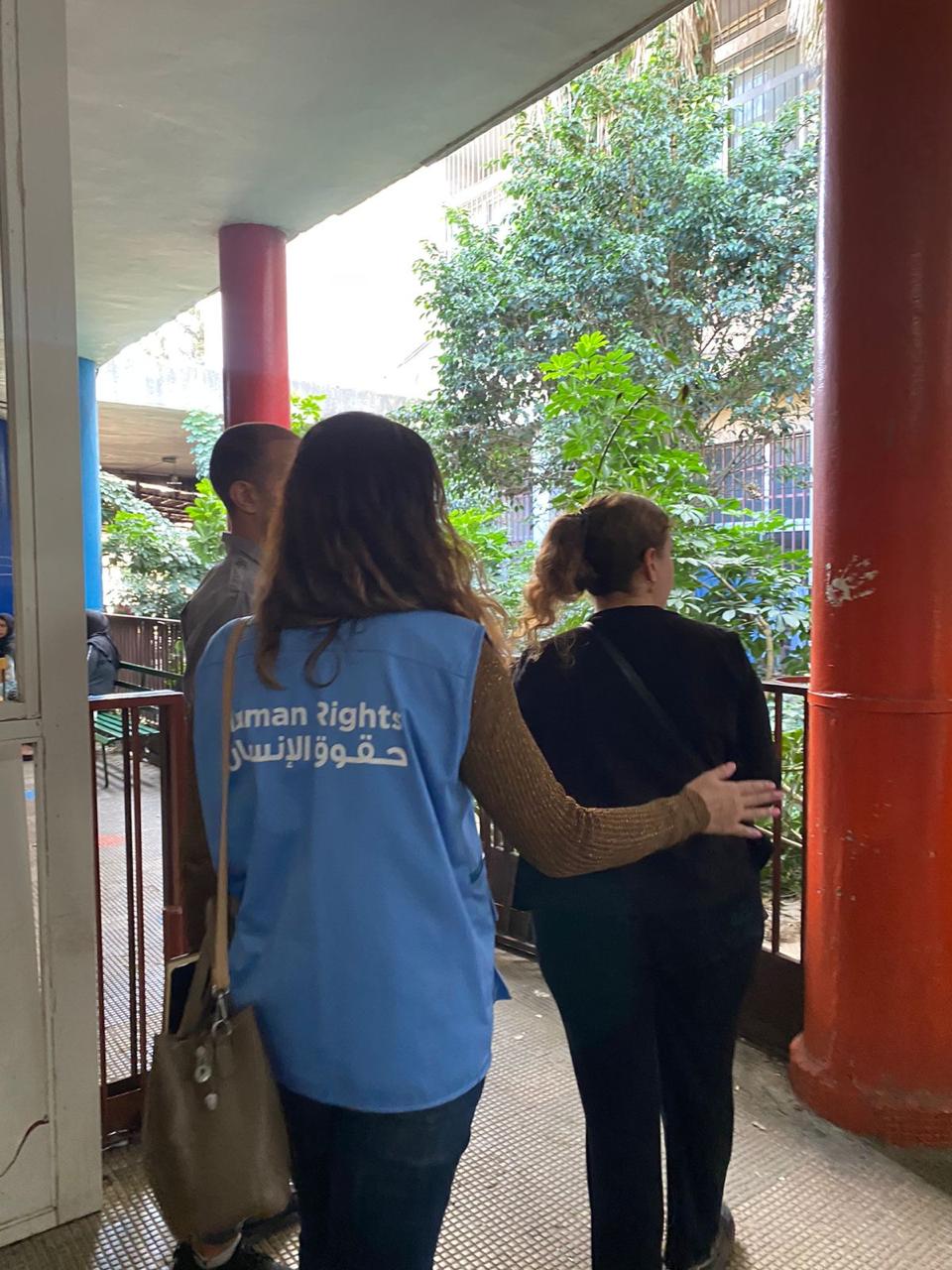
Details of the Visit:
The team entered the three-story building, where they were informed that the school principal was not present that day and that members of the Progressive Scout Association were managing the school. The team interviewed some of the scout leaders, who provided available information about the displaced persons’ situation.
Number of Displaced Persons:
According to the scout leaders, the school currently hosts 550 displaced persons, including men, women, and children. Due to overcrowding, many displaced persons have been forced to sleep on the school’s playground, reflecting the immense pressure on the facility, which was not designed to accommodate such a large number of people.
Entry Process:
The scout leaders explained that when a displaced family arrives, their names are registered with the Progressive Scouts, after which rooms are assigned.
Organizations Providing Assistance:
Several organizations and clinics are involved in supporting the displaced persons. These include:
- Progressive Scout Association: Responsible for managing the building and coordinating with other organizations.
- Saa’d Association: Provides cleaning supplies, although there is a significant shortage.
- Al-Ikhlas Clinic: Offers medical care and medication, with doctors on site to treat the displaced persons.
- Islamic Relief Authority: Provides canned food.
- Caritas: Provides lunch and dinner meals.
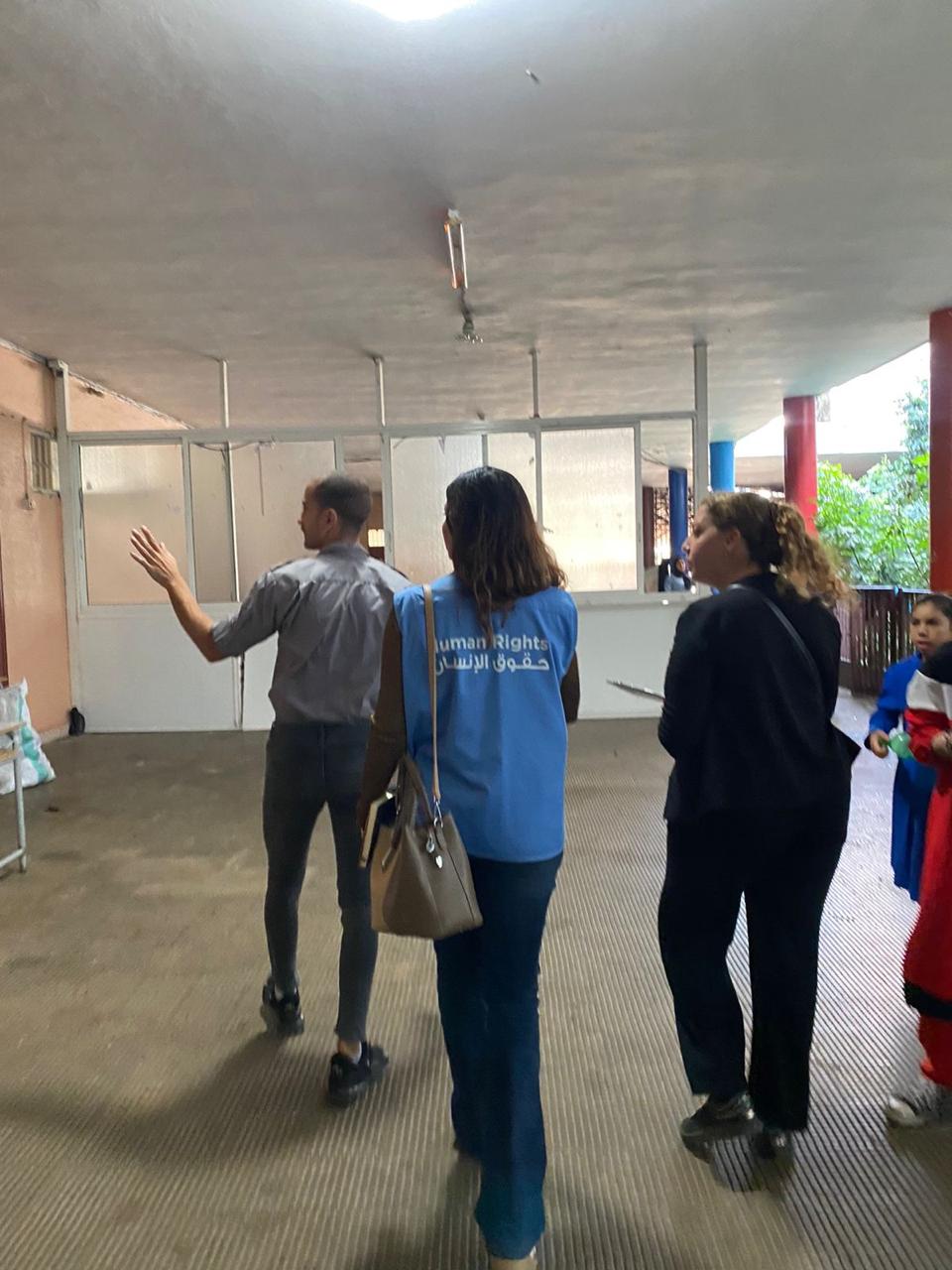
Basic Needs:
Regarding food security, the center primarily depends on meals provided by Caritas. However, the team noted a shortage of food and other essential supplies. Following reports of food poisoning in different schools, the center no longer accepts individual food donations.
Water for drinking and bathing is available, and the bathrooms are equipped with showers and water heaters. However, there is a severe shortage of cleaning supplies. Electricity is supplied through the national grid and a 10-amp subscription, but insufficiently coversuilding’s needs for 24 hours.
Urgent Humanitarian Needs:
The center relies on donations from organizations for bedding and furnishings, but these are not enough. For example, each room receives only half the required beds, meaning two people must share one mattress. There is also a need for more blankets, pillows, sanitary pads, diapers, and baby formula.
Health Situation:
Al-Ikhlas Clinic provides medication, but the available supply is insufficient to meet all needs, especially for chronic conditions.
Privacy and Human Rights Violations:
During the team’s tour of the building, they observed that some rooms lacked partitions, raising serious concerns about the privacy of the displaced families. Multiple families share the same room without a curtain to separate them, which could lead to potential social and humanitarian issues.
The team was also informed that a decision had been made to transfer 100 displaced persons to newly established UN camps.
Facilities and Services:
The shared bathrooms have showers and water heaters, serving many displaced persons. Clothing, shoes, and undergarments are provided through individual donations, but there needs to be more to meet all needs.
Recommendations:
Following this visit, the team recommends the following steps to improve the humanitarian conditions at the center:
- Increase the number and quality of meals, Especially for children and pregnant women.
- Provide necessary medication, including an excellent supply of essential and chronic disease medications.
- Ensure adequate mattresses and bedding: To improve the sleeping conditions of displaced families.
- Supply clothing and shoes, Particularly undergarments, which are a basic need.
- Enhance cleaning services: Provide more cleaning supplies and shampoo, as there is a significant shortage of these items.
- Provide essentials for children, Such as diapers and baby formula.
- Offer psychological support: Through cooperation with counselors to provide support for displaced children suffering from trauma.
- Organize recreational activities for children: To alleviate their difficult living conditions.
